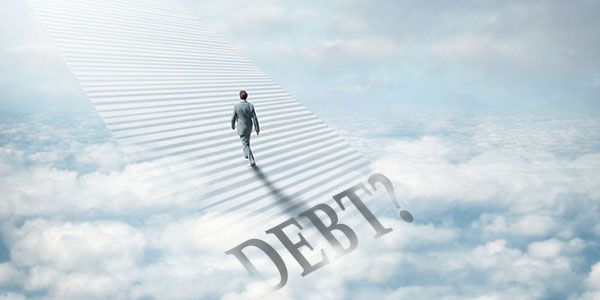When a debtor dies, the debts he owed in his lifetime, are not easily forgotten and forgiven.
The creditors will definitely search for something, which will compensate the debts owed. This something includes the assets the deceased owned or inherited.
And, all such assets when considered together, forms an unique estate of its own! This estate will then be evaluated by the court, wherein the estate enters into probate. Finally, the creditors get duly paid and the debt liabilities in the name of the deceased, get cleared, as funded by the estate’s valuation!
But then, there arises the question, “What happens to debts after death with no assets?” Practically that’s an ideal condition, because if there’s really nothing left by the debtor as a so-called asset, then the debts are cleared out of an act of forgiveness!However, there’s only a few to none instances where the deceased hasn’t left anything to form an estate.
The first big asset one leaves behind after death, is definitely the primary residence. Next in line could be a secondary home or property. Then there could be vehicles, jewelry, any other ongoing source of taxable income or business, and so on!
On the other hand, non-probate assets include life insurance (with the proper beneficiary, and not titled to the estate), a property entitled to a survivor, pension plans, retirement accounts, and so on.
It is always advised to discuss the validation of assets as probate or non-probate with an expert lawyer before handling such properties or paying off debts to creditors.
The question, “What debts you are responsible for”, is the most important one:
Usually, for consumer debts, the estate value and funds will be used by the estate administrator to compensate the debts.
The first priority debts are obviously security backed debts and tax debts. These are the first concerns that will be taken care of.
A mortgage debt will be cleared by an act of property foreclosure by the lender. The same thing happens with a car loan.
But, the problem is, if someone cosigned credit accounts and loans with the deceased, then the cosigner is definitely responsible to pay off the debts.No one else is legally responsible for a deceased debtor’s debts. Even if the survivors or inheritors are the debtor’s own child, spouse, grandchildren, or any immediate relative in any form of bloodline!
How are debts handled after the debtor dies?
It’s clear as water.
The debtor dies!
His property and assets are calculated to form an estate!
The debts are then sorted out into ‘Secured’, ‘Unsecured’ and ‘Priority Debts’ (usually includes tax debts from both Federal and “State And Local Taxes).
Secured debts are compensated by selling the collaterals. Then priority debts are handled by filing tax claims, where the estate and the deceased individual will be considered as different taxable entities.
Then comes the question of unsecured debts. If the estate has enough money, then the debts are paid off, else the creditors run into a loss!
Hence ultimately arriving to our main question. What if there’s no estate or an asset? How will the debts be paid back?
But if there’s any cosigner or joint holder, then it becomes that person(s) responsibility to clear the debts!









